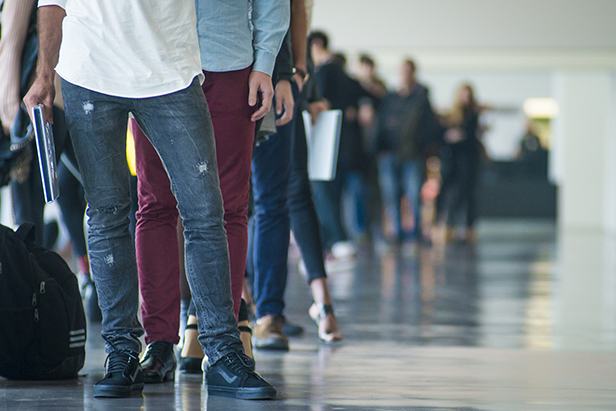News April 02, 2020
Delays for Gig Workers Seeking Unemployment
The CARES Act expanded unemployment benefits to independent contractors and the self-employed, but it could be weeks before they get their first checks.
The $2 trillion coronavirus relief bill last week vastly expanded unemployment insurance, but the record number of Americans filing for jobless claims is overtaxing the system in many states, causing delays in accessing the benefits.

The last week of March, a record 6.6 million people filed for unemployment. The CARES Act gives people who’ve lost their jobs an extra $600 a week for four months, and extends existing state benefits by 13 weeks. The law also extends unemployment benefits to gig workers, independent contractors and the self-employed, who were previously ineligible to receive these benefits. However, many states are ill-equipped to accept applications from these new groups, causing delays, confusion and frustration, according to CNBC.
Many states say they are awaiting guidance from the Labor Department on how to handle unemployment for gig workers. Without that guidance (and already facing an onslaught of new jobless claims), local unemployment offices say it could be weeks before they’re able to set up new systems to process additional benefits from gig workers, according to the Washington Post.
“There will be lots of states that futz and putz until we figure out what the rules and regulations are,” lawyer Bill Sokol told CNBC.
In California, some independent contractors who’ve applied for benefits over the last few days have been told they’re ineligible, despite the new provisions in the CARES Act, Veena Dubal, an associate professor at the University of California, Hastings College of the Law, told the Washington Post. “There is a lot of confusion about how the states are going to be rolling out the benefits provided in the CARES Act,” she said.
States including Colorado and Pennsylvania are telling the self-employed to hold off on placing a claim until the system can be updated to include them.
Accepting applications and processing payments for these previously uncovered workers is likely to be labor-intensive, made even more onerous because staff members themselves may be working at home due to the coronavirus. It could be weeks before the self-employed receive their first unemployment check, according to the Washington Post.
